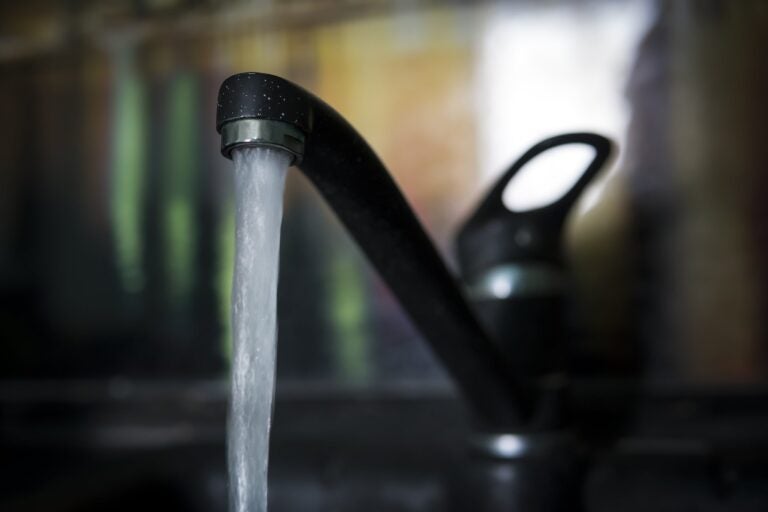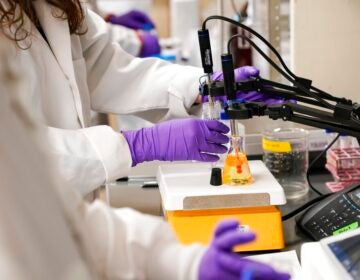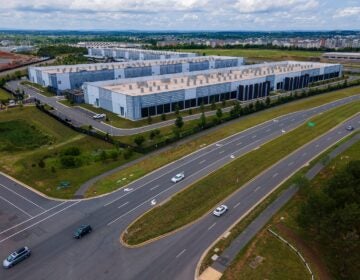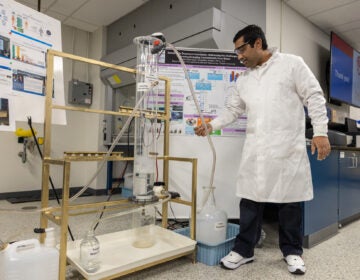New federal funding to speed clean up efforts at Montgomery County superfund sites
Residents with private wells in parts of Montgomery County have relied on bottled water or filtration systems since the 1990s.

Contaminated sites that made private well water in parts of Montgomery County undrinkable may be cleaned up within a year. (BigStock)
From Philly and the Pa. suburbs to South Jersey and Delaware, what would you like WHYY News to cover? Let us know!
Residents near the Baghurst Drive and Salford Quarry superfund sites in Montgomery County have had contaminated private wells for decades.
Although they now have an alternative clean drinking water source, the Environmental Protection Agency wants to prevent the contamination from migrating to other nearby water supplies.
New federal funding announced Tuesday will help EPA remediate both sites at a faster pace, officials said.
“In previous times, our funding was more limited, so we could only do the work that we could with the amount of funding available. But when we receive everything that we need at once, it doesn’t delay the process,” said the EPA’s Katie Mishkin, who is part of a team working to remediate contaminated sites in eastern Pennsylvania.
The superfund sites in Montgomery County are among the 25 across the U.S. to receive more than $1 billion from the federal Bipartisan Infrastructure Law. It’s the third and final round of more than $3 billion to help clean up more than 150 priority superfund sites in the country.
Close to 80% of the funding has supported sites in communities with potential environmental justice concerns. More than one in four Black and Latino people in the U.S. live within three miles of a Superfund site, according to the EPA.
“This funding will help improve people’s lives, especially those who’ve long been on the front lines of pollution,” said EPA Deputy Administrator Janet McCabe. “We have a historic opportunity here to restore hope to communities and to transform these blighted Superfund sites, making them not just safe and habitable, but bustling, vibrant places to live.”
The funding will help the EPA remove Volatile Organic Compounds from the groundwater at the Baghurst Drive superfund site near Harleysville.
The VOCs, from an unidentified source, have contaminated private well water for 27 nearby households since at least 1999. Since then, the residents have relied on bottled water or filtration systems.
In 2022, the EPA completed the construction of a public waterline for the impacted residents, who will soon be connected to municipal water from the Schwenksville Water Authority.
The funding will also help the EPA construct a barrier to contain buried waste that’s impacted groundwater near the Salford Quarry superfund site in Lower Salford Township.
In the 1950s, a waste disposal company dumped industrial, commercial and residential waste in the quarry. Between the 1960s and 1980, a tile manufacturer disposed of sludge sediment and scrap tiles on the site.
The dumping activities contaminated the private wells of more than 100 nearby residents with boron — a non-metallic, naturally occurring element used in the production of glass and ceramics, as well as glass fibers.
People in the surrounding area have been connected to public water since the mid-1990s. However, cleaning up both sites in Montgomery County will prevent the contaminants from entering other water supplies in the area, Mishkin said.
“Groundwater is migrating,” she said. “We don’t want to make the situation worse beyond the residents that are already impacted.”
The new federal funding will also be directed to several other cleanup efforts in the Philadelphia region — including at the Matlack, Inc. superfund site in Woolwich, New Jersey, contaminated by cleaning solution used to clean trucks and tankers.
In New Castle, Del., the funding will help the EPA excavate and treat wetland soils and sediment contaminated by industrial activities at the former chemical manufacturing plant, Standard Chlorine of Delaware, Inc.
“Remediating and reclaiming valuable land will breathe fresh life into communities across our country and help address crucial public health and environmental justice issues,” said U.S. Sen. Chris Coons of Delaware.

Get daily updates from WHYY News!
WHYY is your source for fact-based, in-depth journalism and information. As a nonprofit organization, we rely on financial support from readers like you. Please give today.






